Edible insects and plant-based proteins to be the subject of classroom debates

Edible insects and plant-based alternatives to meat will be discussed with children as part of new research.
The project, led by academics at Cardiff University and the University of the West of England (UWE Bristol), aims to find out children’s attitudes to environmental issues and how this translates into views on the food they eat.
Focusing on learners of primary school age (five to 11) and their teachers in Wales, the research will use surveys, workshops, interviews and focus groups to explore young people’s understandings and experiences of alternative proteins. Teachers will also give their input on how these discussions should take place in the classroom.
As well as published research, the project aims to provide resources for schools to help them deliver lessons on the environmental impact of what people put on their plates.
The first phase, which starts this week, involves initial surveys with teachers at schools in south Wales.
Dr Christopher Bear, based at Cardiff University’s School of Geography and Planning, said: “Young people’s voices are becoming increasingly prominent in discussions on environmental futures and animal welfare. Embodied in Greta Thunberg’s Fridays for Future movement, their highlighting of intensive livestock farming’s greenhouse gas emissions has been especially high-profile.
“But there is still little research on how these values translate into food consumption attitudes and practices among children. This research project is an opportunity for us to find out how young people of primary age envisage the role of edible insects and plant-based proteins in more sustainable and ethical food futures.”
Dr Verity Jones of UWE Bristol said: “The introduction of the new curriculum in Wales, which puts an emphasis on developing ethical and sustainable citizenship through formal education, gives us an opportunity to work with schools so that teachers are given the right tools and children are empowered to explore some of these complex issues.
“While focusing on Wales, the findings and resources will speak to similar concerns and developments internationally.”
Carl Evans, Headteacher of Roch Community Primary School in Pembrokeshire, which is taking part in the project, said: “At the school we recognise the important connection between our local community, food production and wider global issues surrounding sustainable development. We know these issues are important to children, but also difficult to make sense of and can often be confusingfor them.
"We welcome the opportunity to work with academics from Cardiff and UWE to explore these issues and support children in developing critical thinking around sustainable citizenship.”
Consumers in the UK have shown an increased demand for healthy, sustainable diets, with a focus on reducing traditional meat products such as beef and chicken.
A recent study found that over seven million adults in the UK follow a meat-free diet and a further six million intended to shift to vegetarian or vegan diets.
Meat-free diets were most prevalent among those aged 18-23. Most existing studies on attitudes to alternative proteins focus on adults; this new research fills an important gap in shifting the attention to children as important and influential consumers.
Although the consumption of insects as food is relatively new to the UK, it is practiced by two billion people globally, particularly in Asia, Latin America and Africa. They are increasingly being sold across the EU.
In the UK, the Food Standards Agency is currently assessing house crickets or human consumption.
Plant-based proteins are now popular products at supermarkets in the UK, promoted on the basis of their environmental sustainability in comparison to other livestock sectors, as well as their high nutritional value.
Related news

15 December 2025
UWE Bristol rises eleven places in People & Planet University League
UWE Bristol has risen to 14th in the People & Planet University League (UK), a jump of eleven places.

12 December 2025
UWE Bristol’s environmentally conscious and student-focused accommodation wins three awards
Purdown View, the world's largest certified Passivhaus student accommodation development, has been recognised at Property Week Student Accommodation Awards.

20 November 2025
UWE Bristol ranked among top 12 per cent of universities globally for sustainability
UWE Bristol has climbed over 400 places in the QS World University Sustainability Rankings 2026, which evaluates universities on a range of environmental and social impacts.

06 November 2025
UWE Bristol welcomes West of England Mayor for annual Green Week
Helen Godwin, Mayor of the West of England, visited UWE Bristol during its annual Green Week to see the sustainability-driven research, innovation and skills initiatives that are helping to power the growth of the region’s green economy.
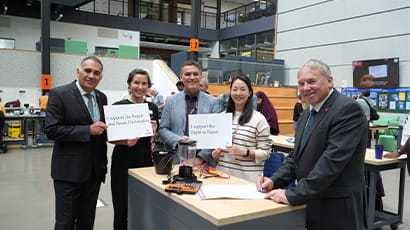
16 October 2025
UWE Bristol signs Repair and Reuse Declaration in commitment to sustainable initiatives
UWE Bristol is the first UK university to sign the Repair and Reuse Declaration as a whole institution, a call to legislators and decision makers to tackle climate change through greater repair and reuse support.

15 October 2025
UK food needs radical transformation on scale not seen since Second World War, new report finds
A new report from the Agri-Food for Net Zero Network+ finds urgent action on food is needed if the UK is to reboot its flagging economy, save the NHS billions, ensure national food security, and meet climate commitments.
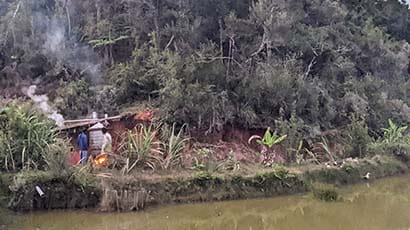
24 September 2025
UWE Bristol to help protect threatened forest in Madagascar in £800k project
UWE Bristol is a partner in a groundbreaking project awarded almost £800,000 in funding to protect one of Madagascar’s most precious and threatened forests.
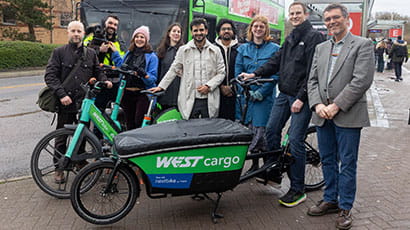
24 February 2025
WESTbusStop+ makes sustainable travel more convenient
A new WESTbusStop+ bringing together buses and other ways to travel has been officially opened at UWE Bristol’s Frenchay campus.
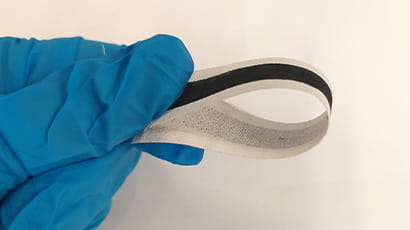
03 January 2025
Big leap forward for environmentally friendly ‘e-textiles’ technology
Research led by UWE Bristol and the University of Southampton has shown wearable electronic textiles (e-textiles) can be both sustainable and biodegradable.

28 November 2024
Work of UWE Bristol academics features in Government report on air quality measurement
Two UWE Bristol academics have made contributions to an influential Government report on the measurement of air pollution.

27 November 2024
Traffic noise reduces the stress-relieving benefits of listening to nature, study finds
Road traffic noise reduces the wellbeing benefits associated with spending time listening to nature, researchers have discovered.
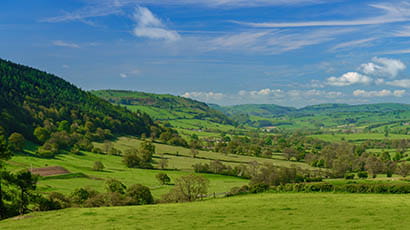
15 November 2024
Grasslands project led by UWE Bristol academic to support UK’s bid for net zero emissions
A UWE Bristol researcher will lead a £4.7 million project focused on the management of UK’s grasslands aimed at supporting efforts to achieve net zero emissions by 2050.






